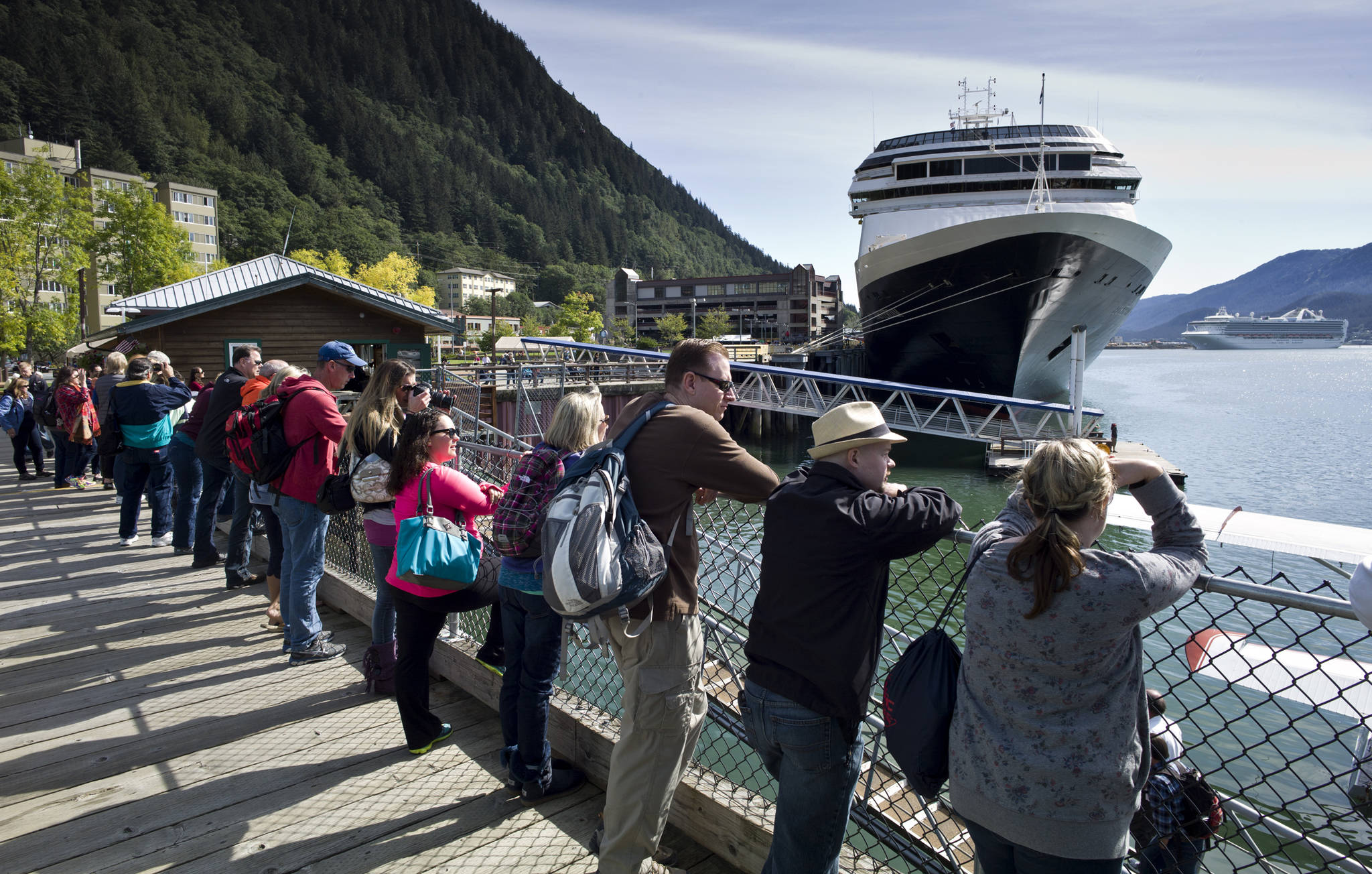By Win Gruening
The unsuccessful effort to gather sufficient signatures for the three proposed initiatives limiting cruise visitors to Juneau was a welcome relief to many.
Cruise Control, the group seeking changes to the City Charter, claimed they gathered a “substantial number of signatures” but declined to reveal how many. The group blamed their failure on the pandemic, the weather, and what they termed “an intense suppression campaign” by Protect Juneau’s Future, a group supported by a wide range of people and organizations opposing the measures, including local businesses, a number of City and Borough of Juneau Assembly members, Native corporations, unions and civic leaders.
Those excuses overlook the initiatives’ harmful economic consequences that weighed heavily on voters’ minds and surely influenced their decision not to sign the petitions.
Most Juneau residents understand that a healthy economy requires trade-offs, and solutions won’t be found by going backward as it appears Cruise Control prefers to do.
Now, Cruise Control wants the Assembly “do the right thing” by adopting ordinances restricting hours for cruise ships and not allowing ships on Saturdays and in evenings, the very same ideas that were summarily rejected by the community. Cruise Control also continues to refuse to acknowledge the work done by the Assembly-appointed Visitor Industry Task Force or by the Tourism Best Management Practices program.
Indeed, VITF Report recommendations, including whether a fifth cruise ship dock should be built, among others, would address concerns expressed by Cruise Control. Several recommendations, in particular, are worth noting.
The Norwegian Cruise Line dock proposal, endorsed with a variety of caveats, will help reduce congestion downtown. If properly permitted with a Memorandum of Understanding, it would divert passengers from the downtown core and reduce bus traffic through the center of town.
The new dock will accommodate a single cruise vessel on one side of the pier with the Coast Guard and NOAA utilizing the other side. The dock will be built perpendicular to shore so as not to obstruct the view plane and would be equipped with electric shore power. As envisioned, it will be a world class venue, incorporating the long-planned Alaska Ocean Center, a connecting seawalk and local retail and cultural activities. Below grade parking for buses will provide for public green space and waterfront access.
As important, associated recommendations signal that “hot berthing” of large cruise vessels would no longer be allowed and capacity in Juneau’s harbor will be limited to five large cruise ships per day — with the requirement that an additional ship at anchor be limited to a small ship — the currently proposed definition of which are those carrying fewer than 500 passengers.
Effectively, this means, even with an additional dock, there would be no net increase in large cruise ship capacity.
Other recommendations, including prohibition of cruise ships docking in Auke Bay’s Don D. Statter Harbor and the potential permitting of tourism activities to avoid over-crowded venues, will serve to moderate growth during peak periods.
All the recommendations in the VITF report deserve consideration, and the Assembly should waste no time evaluating and acting on them. Cruise ship itineraries for 2023 are being finalized now so 2024 may be the earliest schedule we can realistically influence. Even before deciding on a detailed plan to address cruise ship capacity, the CBJ Assembly can, at a minimum, pass broad resolutions that state their intentions, so Juneau businesses and the cruise industry have time to adjust.
While action on these recommendations is important, our community should recognize that, ultimately, long-term solutions include creating additional experiences and activities for visitors to enjoy. This will require the Assembly to continue improving and expanding infrastructure to allow Juneau’s entrepreneurial spirit to flourish elsewhere in the borough. As an example, enhancing summer activities at Eaglecrest, building a Second Channel Crossing and completing the West Douglas Road would all serve as catalysts for new recreational and cultural opportunities for the benefit of both residents and visitors.
The best solutions will always be attained by moving forward, in a positive, not punitive way. That’s how we’ll make Juneau a great place to visit, but more importantly, a great place to live.
• After retiring as the senior vice president in charge of business banking for Key Bank in Alaska, Win Gruening became a regular Opinion Page columnist for the Juneau Empire. He was born and raised in Juneau and graduated from the U.S. Air Force Academy in 1970. He is involved in various local and statewide organizations and currently serves on the board of the Alaska Policy Forum. Columns, My Turns and Letters to the Editor represent the view of the author, not the view of the Juneau Empire. Have something to say? Here’s how to submit a My Turn or letter.

